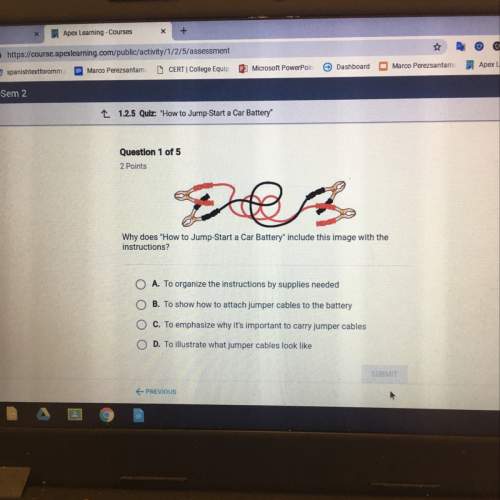Read the passage.
"day of infamy" speech
by franklin delano roosevelt
...

English, 13.01.2020 05:31, allstar1255
Read the passage.
"day of infamy" speech
by franklin delano roosevelt
mr. vice president, and mr. speaker, and members of the senate and house of representatives:
yesterday, december 7, 1941—a date which will live in infamy—the united states of america was suddenly and deliberately attacked by naval and air forces of the empire of japan.
the united states was at peace with that nation and, at the solicitation of japan, was still in conversation with its government and its emperor looking toward the maintenance of peace in the pacific. indeed, one hour after japanese air squadrons had commenced bombing in the american island of oahu, the japanese ambassador to the united states and his colleague delivered to our secretary of state a formal reply to a recent american message. and while this reply stated that it seemed useless to continue the existing diplomatic negotiations, it contained no threat or hint of war or of armed attack.
it will be recorded that the distance of hawaii from japan makes it obvious that the attack was deliberately planned many days or even weeks ago. during the intervening time the japanese government has deliberately sought to deceive the united states by false statements and expressions of hope for continued peace.
the attack yesterday on the hawaiian islands has caused severe damage to american naval and military forces. i regret to tell you that very many american lives have been lost. in addition american ships have been reported torpedoed on the high seas between san francisco and honolulu.
yesterday the japanese government also launched an attack against malaya.
last night japanese forces attacked hong kong.
last night japanese forces attacked guam.
last night japanese forces attacked the philippine islands.
last night the japanese attacked wake island. and this morning the japanese attacked midway island.
japan has, therefore, undertaken a surprise offensive extending throughout the pacific area. the facts of yesterday and today speak for themselves. the people of the united states have already formed their opinions and well understand the implications to the very life and safety of our nation.
as commander in chief of the army and navy i have directed that all measures be taken for our defense.
but always will our whole nation remember the character of the onslaught against us.
no matter how long it may take us to overcome this premeditated invasion, the american people in their righteous might will win through to absolute victory. i believe that i interpret the will of the congress and of the people when i assert that we will not only defend ourselves to the uttermost but will make it very certain that this form of treachery shall never again endanger us.
hostilities exist. there is no blinking at the fact that our people, our territory, and our interests are in grave danger.
with confidence in our armed forces—with the unbounding determination of our people—we will gain the inevitable triumph- so us god.
i ask that the congress declare that since the unprovoked and dastardly attack by japan on sunday, december 7, 1941, a state of war has existed between the united states and the japanese empire.
part a
what is one of roosevelt's purposes for delivering this speech?
a) to highlight the number of japanese attacks in the pacific
b) to share information yet keep americans feeling safe
c) to illustrate how dangerous the japanese forces are
d) to remind congress that he previously warned of a possible attack
part b
how does roosevelt use rhetoric to advance the purpose identified in part a?
a) he uses overstatement, such as the references to "hostilities" and "grave danger," to stress that he knew the country was in danger.
b) he uses figurative language, describing the day of the attack as one that will "live in infamy," to threaten the japanese.
c) he employs phrases with charged language, such as "righteous might" and "absolute victory," to make americans feel secure and confident.
d) he uses logical fallacies, such as the phrase "premeditated invasion," to strike fear into the hearts of america's enemies.

Answers: 3
Other questions on the subject: English

English, 21.06.2019 18:00, Lilleypad07
You suspect that this article has left out some facts that might lead the reader to believe that someone else made the star-spangled banner. what is the best way to verify this? by consulting a variety of sources by disregarding the article entirely by writing a letter to the editor of the publication that printed the article by reading various historical accounts by verifying the opinions
Answers: 1

English, 22.06.2019 01:00, michaelgold1
What favorite memory did the giver share with jonas? in the giver.
Answers: 2

English, 22.06.2019 03:30, briseno138
What type of persuasive appeal seeks to show that an argument is correct or valid
Answers: 1

English, 22.06.2019 07:20, ozzie26
How does the conflict in this excerpt advance the plot? check all that apply. carew’s murder provides mr. utterson with a reason to search mr. hyde’s house and learn more about him. mr. hyde is found hiding in his home when mr. utterson and inspector newcomen search it. mr. utterson finds evidence on the victim that further ties mr. hyde to dr. jekyll. mr. utterson begins to dislike mr. hyde and becomes suspicious of his connection to dr. jekyll. inspector newcomen and mr. utterson find items that suggest mr. hyde has committed other crimes.
Answers: 1
Do you know the correct answer?
Questions in other subjects:

Business, 12.11.2019 06:31


English, 12.11.2019 06:31

Mathematics, 12.11.2019 06:31


Mathematics, 12.11.2019 06:31

History, 12.11.2019 06:31

Mathematics, 12.11.2019 06:31








